Nature-Based Solutions
How Nature can protect Our Cities
Nature-based solutions (NBS) are inspired by, supported by, or directly mimic natural processes to address urban challenges.
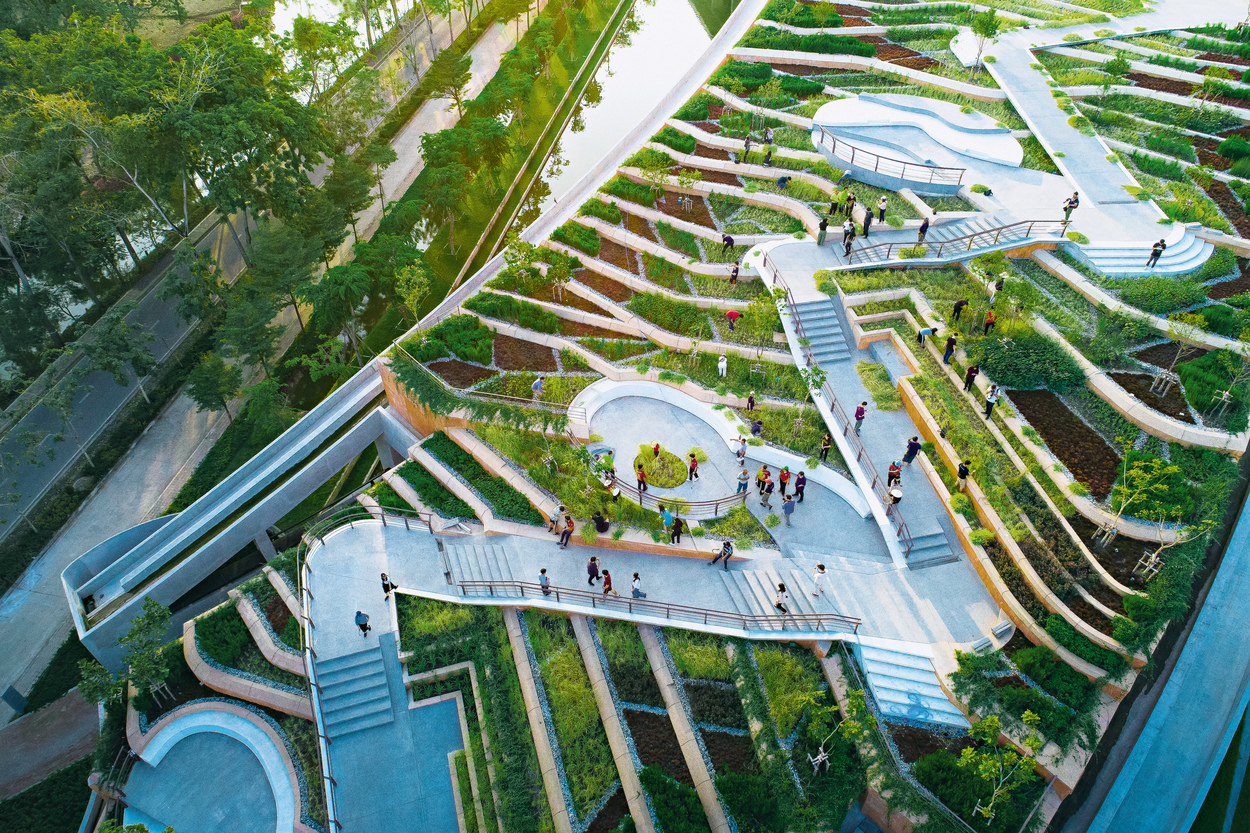
An example of NBS is the new campus covering in Rangsit, Thailand: the largest rooftop urban farm in Asia.
For over a decade, Nature-Based Solutions have been gaining recognition due to their essential role in addressing a wide array of climate-related challenges. The core advantage of NBS lies in their multifunctionality: these solutions provide a range of ecosystem services and deliver environmental, social, and economic benefits. They combine disaster risk reduction, climate change mitigation, and adaptation with the restoration and protection of biodiversity and ecosystems.
Cities and the Climate Crisis
In the 21st century, cities and societies face an array of complex and interconnected challenges. Among these, the climate crisis, biodiversity loss, and ecosystem degradation are among the most pressing concerns. Rapid urban population growth and increased urbanization are contributing to ecosystem degradation due to over-extraction of water, eutrophication, and pollution, while climate change is intensifying the frequency, intensity, and scope of disasters.
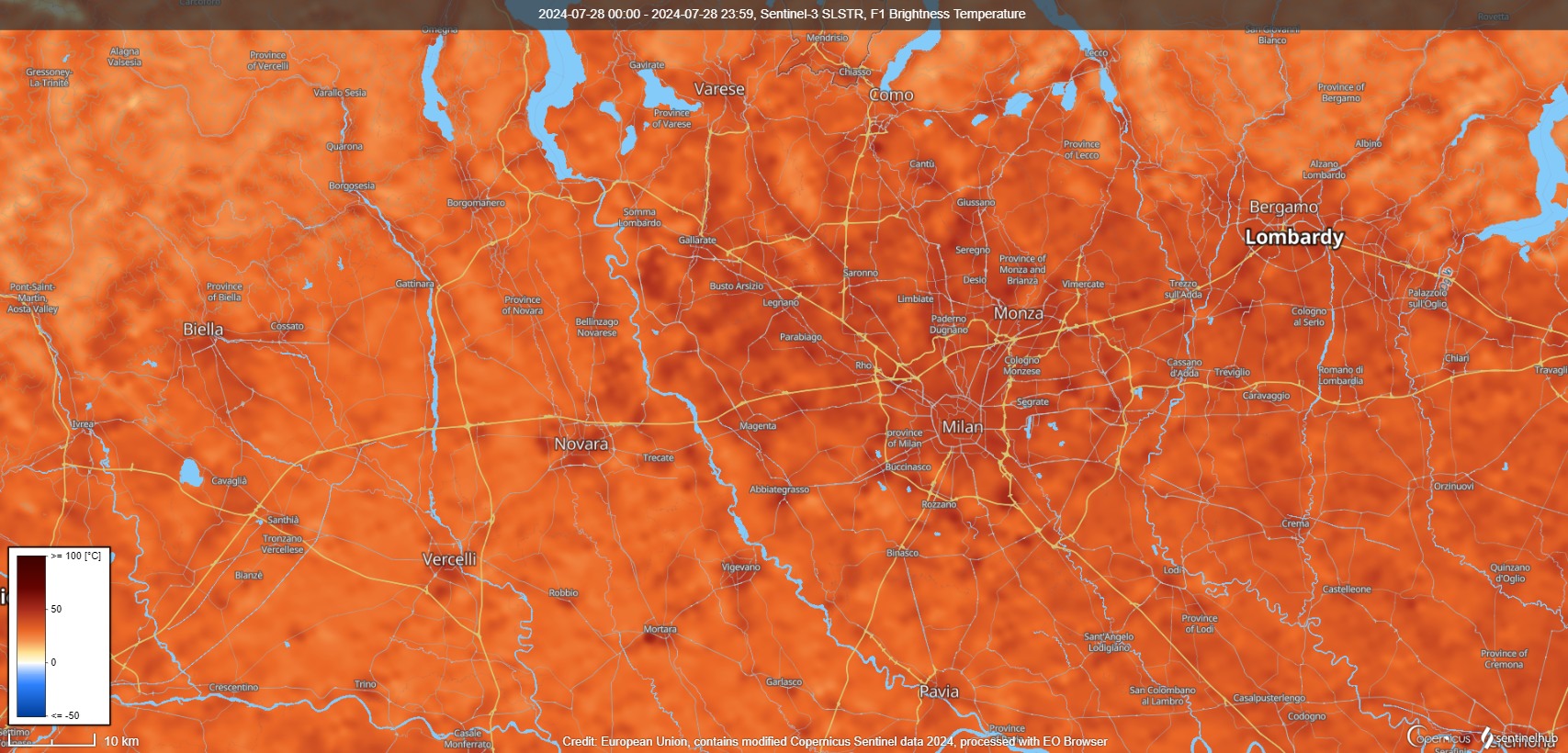
The heat map of Milan on July 28, 2024, captured by the Sentinel-3 satellite
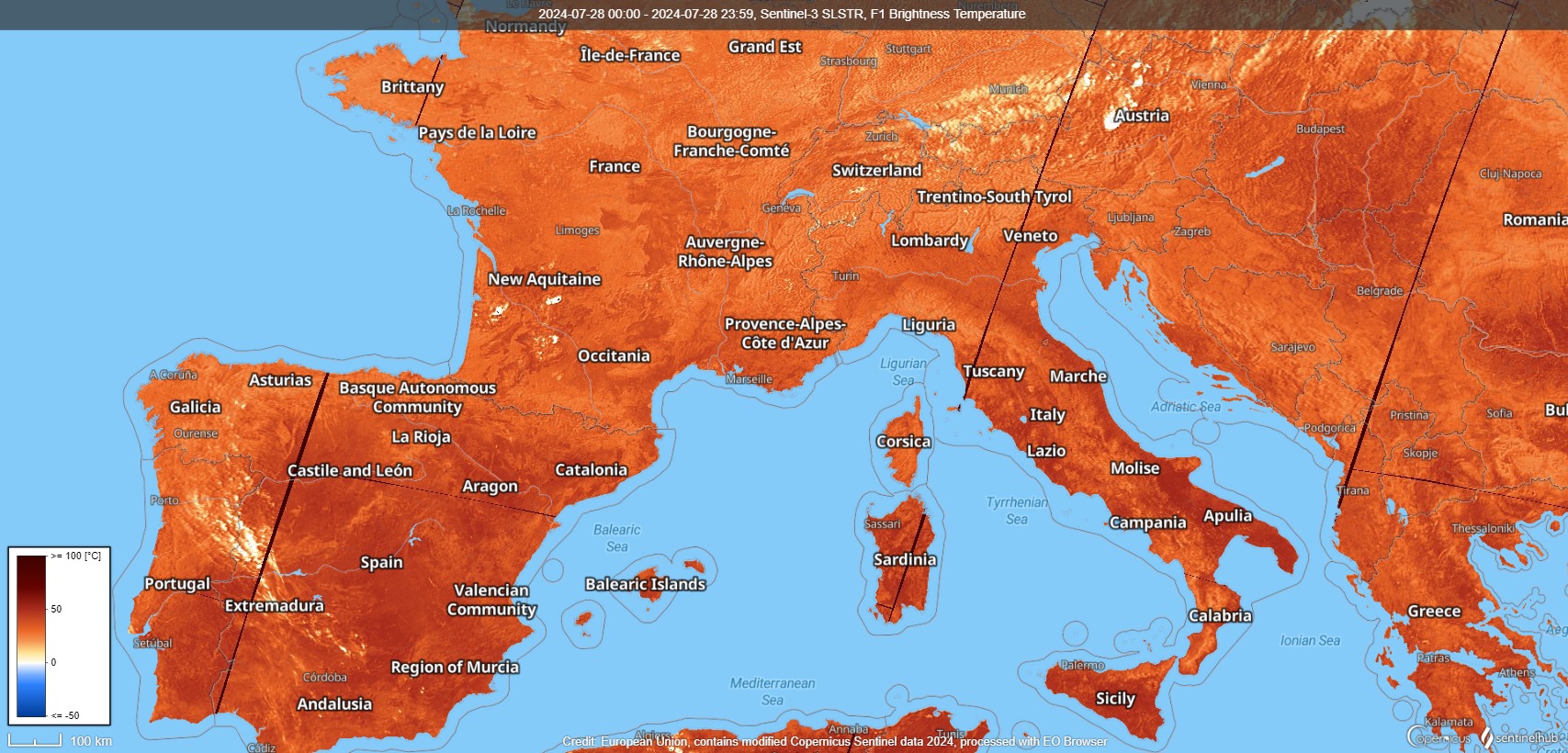
The heat map of Italy on July 28, 2024, captured by the Sentinel-3 satellite
The heat map of Milan on July 28, 2024, captured by the Sentinel-3 satellite, clearly shows the impact of rising temperatures across Italy. Cities must adapt to rising temperatures, more frequent heatwaves, and rising sea levels, which increase the risk of flooding and other extreme weather events.
These are interdependent phenomena that feed into each other, presenting new challenges—not just environmental, but also social and economic.
How to Address These Challenges? A response comes from Nature-Based Solutions, which provide innovative ways to tackle these growing problems using nature’s capabilities.
What Are Nature-Based Solutions?
In recent years, experts have increasingly turned to nature for inspiration, learning from its processes to develop effective strategies that avoid further harm. Interactions between living organisms and inorganic elements such as water, air, and soil provide invaluable ecosystem services, which are difficult for humans to replicate or substitute.
Nature-Based Solutions are inspired by, supported by, or directly emulate natural processes to help societies address the numerous urban challenges they face.
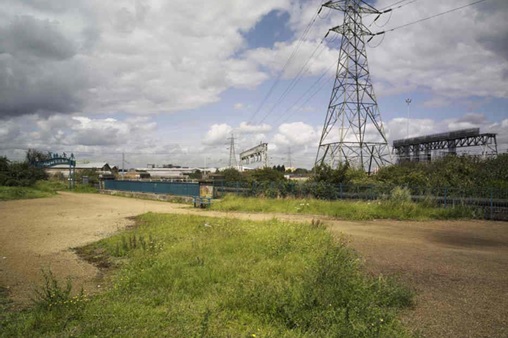

In the images below, the Queen Elizabeth Olympic Park in East London, an area previously disadvantaged, was central to a major urban regeneration plan ahead of the 2012 Olympic Games. These images show various parts of the area before and after regeneration (source: Towards an EU Research and Innovation policy agenda for Nature-Based Solutions & Re-Naturing Cities).
NBS include various approaches such as ecosystem-based adaptation, disaster risk reduction, green and blue infrastructure, and sustainable management of natural resources and forests.
The Origins and Definition of Nature-Based Solutions
The concept of Nature-Based Solutions emerged in the early 2000s as a response to climate change challenges. Initially promoted by the International Union for Conservation of Nature (IUCN) and later by the European Commission, the term was created to unify various existing approaches aimed at leveraging nature to address environmental challenges.
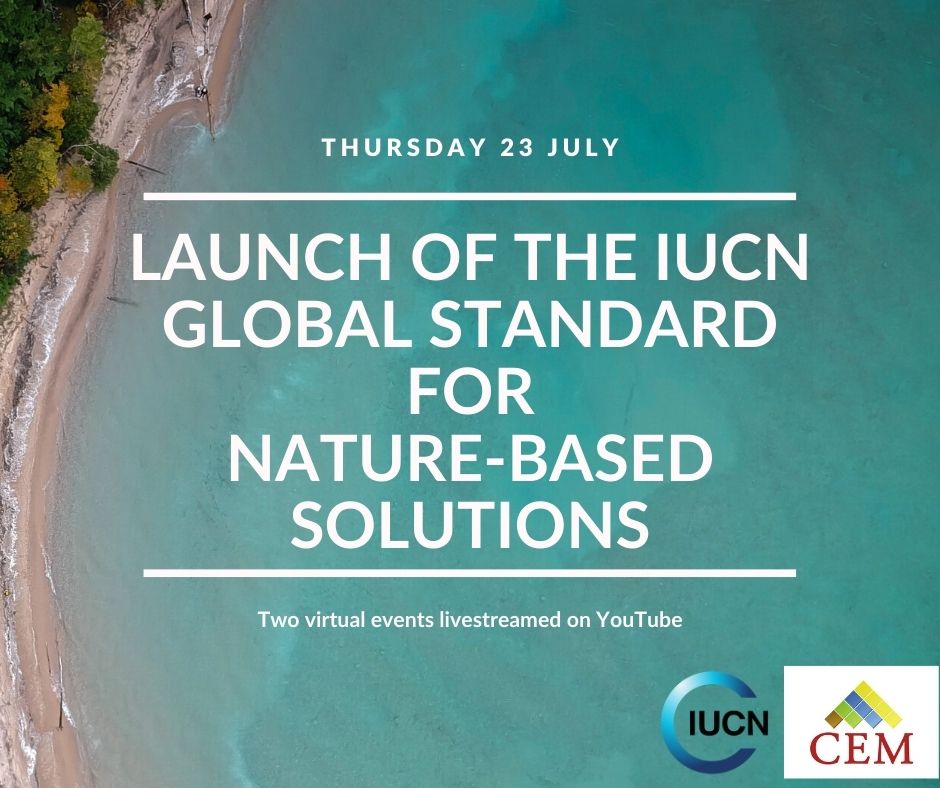
IUCN – Global Standard for Nature Based Solutions, link
The IUCN Global Standard for NBS provides a clear definition and a common framework for evaluating the progress of NBS. This standard is essential for expanding the scope and impact of Nature-Based Solutions, preventing unwanted side effects or misuse, and assisting funding agencies, policymakers, and other stakeholders in assessing the effectiveness of interventions.
Key Benefits of NBS
Nature-Based Solutions focus on the care, monitoring, expansion, enhancement, and valorization of nature—particularly green areas—yielding a range of ecosystem services and benefits.
These solutions contribute to improving air quality by intercepting dust and other air pollutants, regulating the urban microclimate, and mitigating the urban heat island effect. Additionally, NBS help manage water flows, provide recreational opportunities, improve quality of life, and conserve biodiversity. Other advantages include the absorption of greenhouse gases and many other benefits that positively impact the environment and people.
Urban Evolution Project: Nature-Based Solutions to Transform Cities
The research project aims to utilize new technologies, such as remote sensing and artificial intelligence, to monitor urban pollution and highlight the positive impact of Nature-Based Solutions (NBS). The goal is to enhance and value urban green spaces, bringing benefits to air quality, urban microclimates, heat island mitigation, and much more.
Curious to learn more? Read also Urban Evolution Project: Earth Observation and Nature-Based Solutions to Combat Pollution!



